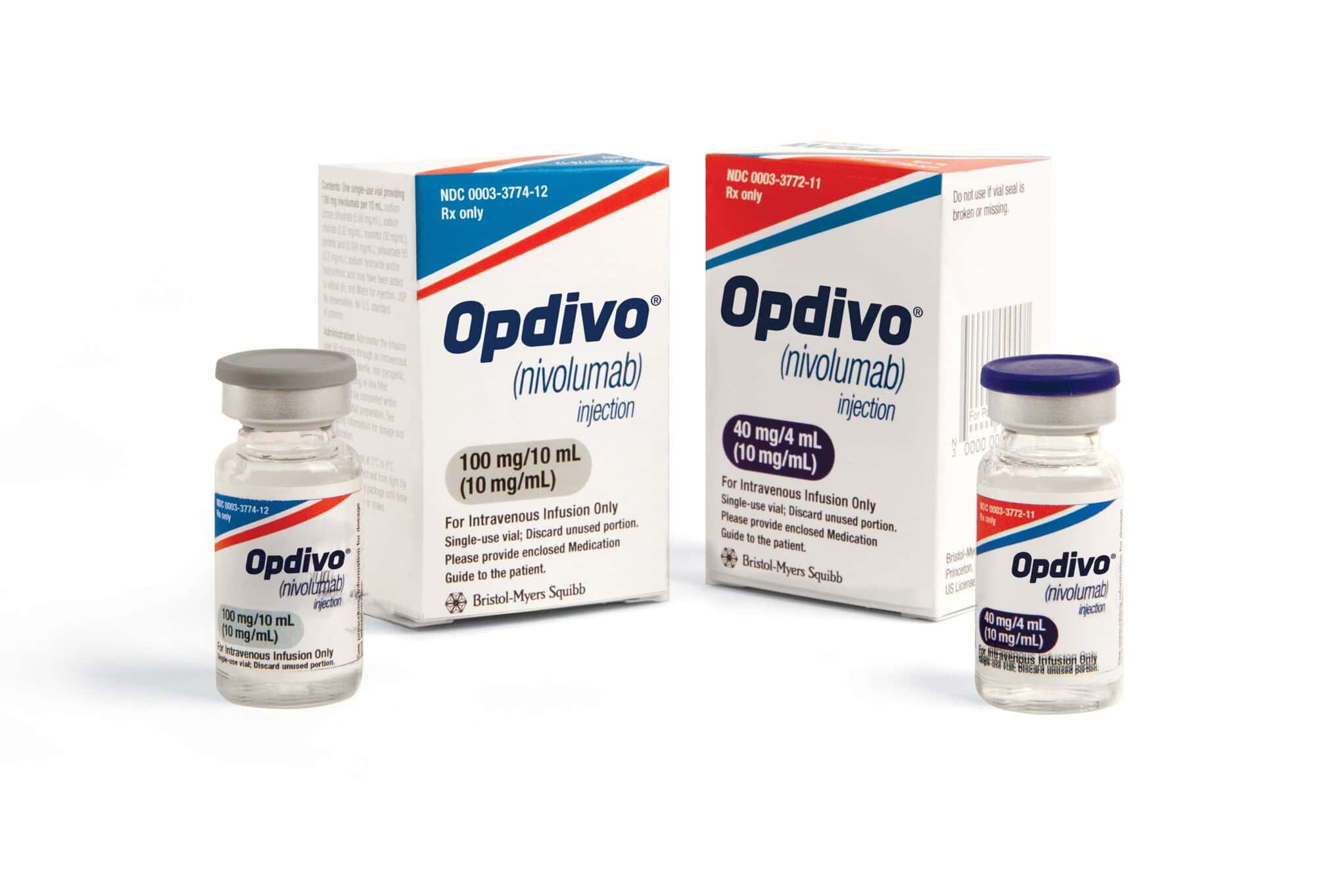
Eclipsed, but still growing: Opdivo approved in new melanoma setting
Bristol-Myers Squibb has just seen Merck & Co’s rival cancer immunotherapy Keytruda overtake its Opdivo in global revenues for the first time, but it is nevertheless still expanding into new therapeutic settings.
The European Commission has just approved Opdivo for the adjuvant treatment of adult patients with melanoma with involvement of lymph nodes or metastatic disease who have undergone complete resection.
This makes it the first and only PD-1 agent with an approved adjuvant therapy indication in the European Union, and also the first immunotherapy to show superiority versus an active control in this patient population.
This represents Opdivo’s eighth indication across six distinct tumour types in Europe.
Aegerion’s rare disease drug approved
Specialist pharma company Aegerion has gained European approval for Myalepta (metreleptin) for the ultra-rare condition, lipodystrophy.
The drug is approved as an adjunct to diet as a replacement therapy to treat the complications of leptin deficiency in lipodystrophy patients. The approval makes Myalepta the first and only licensed medication to treat the leptin deficiency which underlies the ultra-rare condition.
Lipodystrophy is an ultra-rare and incurable disease which impacts a person’s ability to store fat in their body, and can either be generalised (GL) or partial (PL). The condition causes a number of critical metabolic problems, such as severe diabetes, and can cause severe organ damage if uncontrolled. Globally, lipodystrophy affects approximately between 1 and 4 people per million.
Professor Sir Stephen O’Rahilly, professor of clinical biochemistry and Medicine at Addenbrooke’s Hospital, Cambridge commented on the approval: “Lipodystrophy is a rare condition which, due to its complex nature, requires highly specialised treatment. Patients with lipodystrophy have previously relied on lifestyle changes and medications, like insulin injections to manage the condition’s associated complications. Today’s milestone marks a significant change in the way lipodystrophy is treated. For the first time, we will be able to offer patients in Europe a treatment option that addresses one of the fundamental aspects of the condition itself.”
Will Pfizer go low to grab share of Herceptin biosimilar market?
Pfizer has gained European approval for its Herceptin (trastuzumab) biosimilar product, Trazimera.
However the company is joining the market behind a number of other biosimilar products, and Roche’s originator product is also still maintaining sales because it retains exclusivity on the more convenient subcutaneous intravenous formulations.
Tajekesa Chapman, PhD, Pharma Analyst at GlobalData says Herceptin had sales of $2.2bn last year, despite its European patent expiring in 2014.
“Roche is expected to maintain its dominance in the market due to Herceptin’s combination use with other agents and the use of the subcutaneous formulation of the drug in the five major European markets (Germany, France, Italy, Spain and the UK),” says Tajekesa.
GlobalData predicts Trazimera can earn $9m in its first year, far behind the forecast 12 month totals for Celltrion and Mundipharma’s Herzuma ($59m), Amgen’s Kanjinti ($33m), and Samsung Bioepsis and MSD’s Ontruzant ($20m).
Biosimilar market watchers are waiting to see if Pfizer decided to undercut the existing biosimilar competitors in order to grab market share.
Xeljanz approved in ulcerative colitis
Meanwhile, in its ‘innovative health’ medicines division, Pfizer has also gained a new approval for Xeljanz.
A new European Commission approval means the drug is now available as a second line treatment for adult patients with moderately to severely active ulcerative colitis (UC).
Xeljanz has been slow to gain market share since it was launched in 2012, despite it being the only oral treatment in a market of injectables, most notably AbbVie’s blockbuster Humira.
The reason for the slow uptake of the JAK inhibitor drug on the market were safety concerns and modest efficacy data, but Pfizer has turned this around in the last few years by carving out a niche in the market.
Xejanz is already approved in three other indications in the EU: in combination with methotrexate (MTX), in moderate to severe active rheumatoid arthritis in adult patients who have responded inadequately to, or who are intolerant to one or more disease-modifying antirheumatic drugs; as monotherapy in case of intolerance to MTX or when treatment with MTX is inappropriate; lastly in combination with MTX for active psoriatic arthritis in adult patients who can’t take standard therapy.




